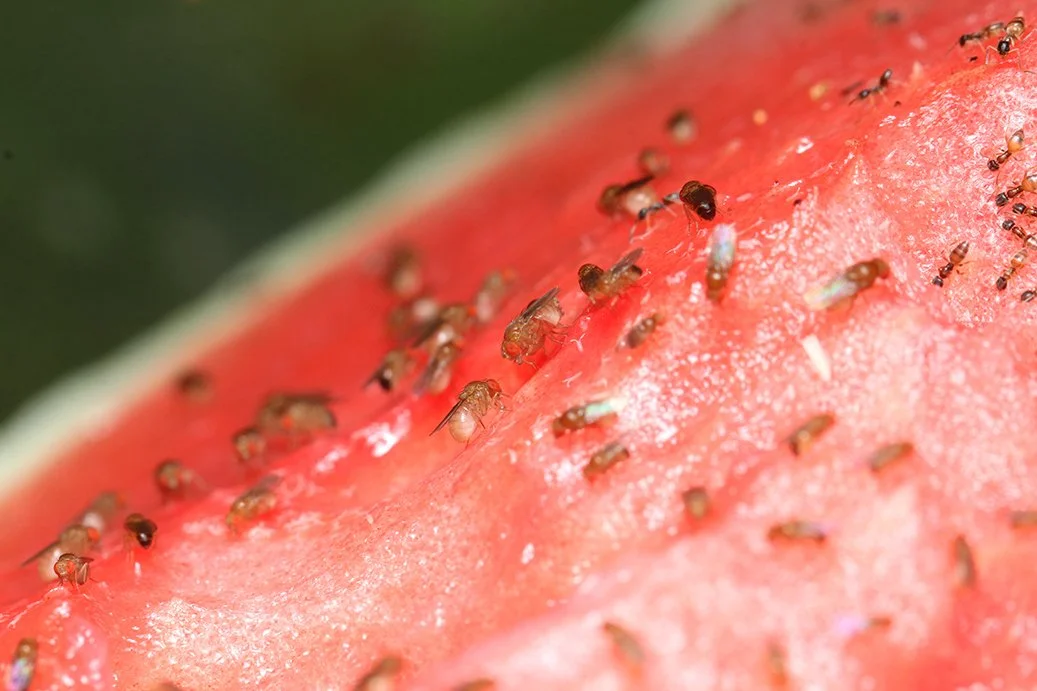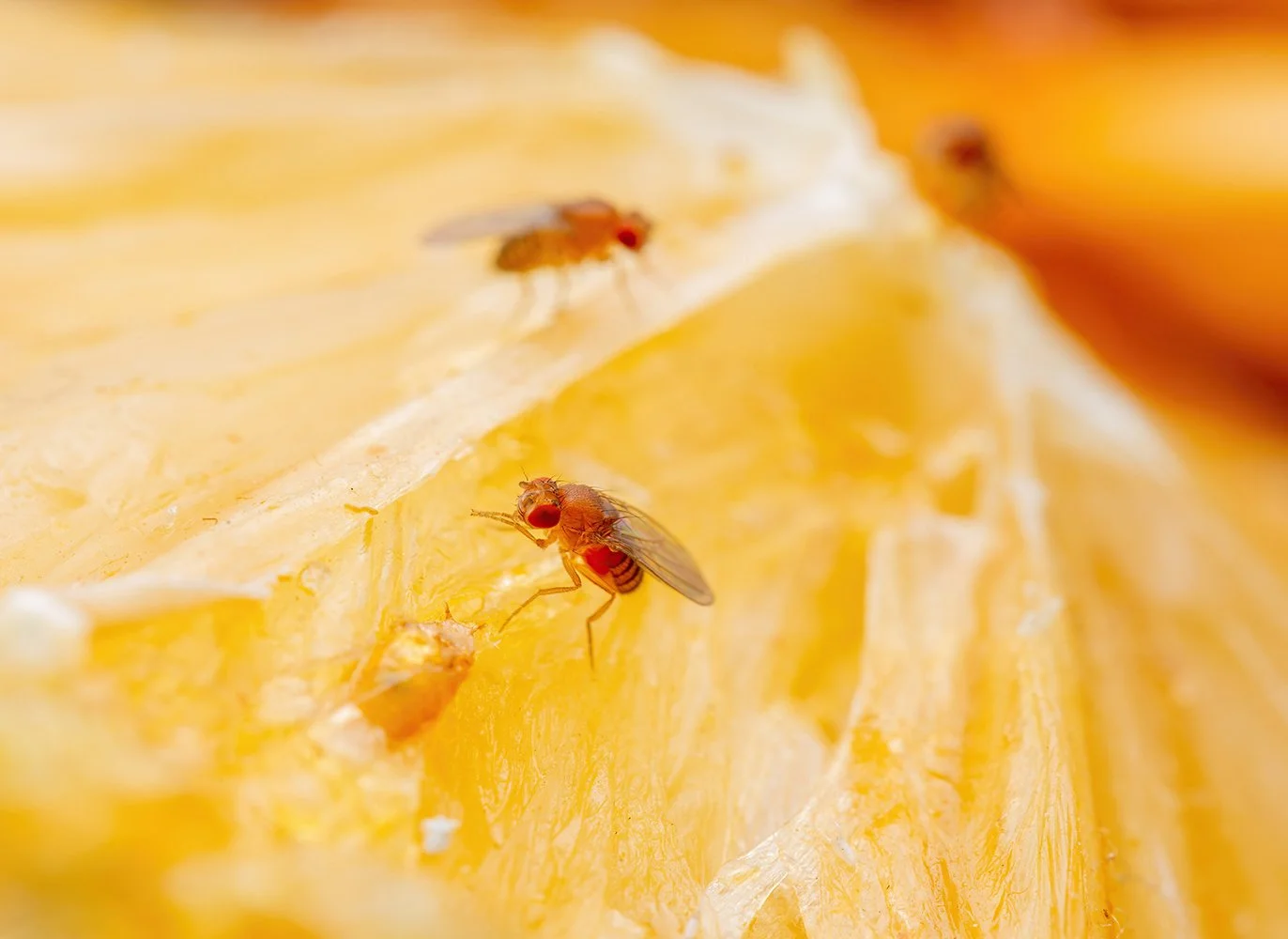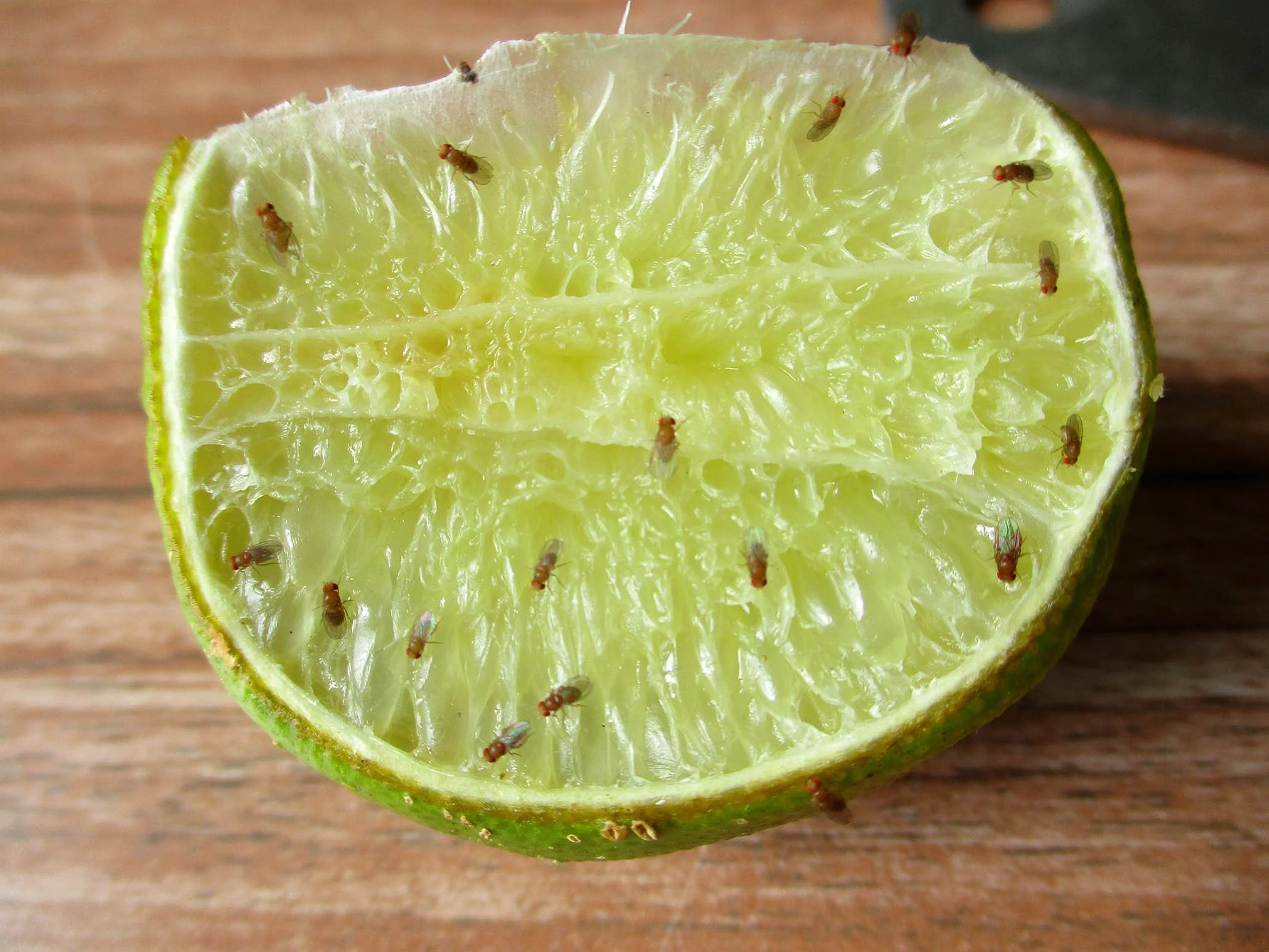Fruit Flies
Fruit flies are small, common pests found in homes, restaurants, and other facilities where food is processed and stored. They are attracted to overripe or decaying fruits and vegetables, as well as sugary beverages and fermented products. Fruit flies can be found in unsanitary conditions, feeding off drain debris, and also around ripened fruit and vegetables.
They are a potential health concern due to their feeding off unsanitary sources and then landing on food, spreading germs across surfaces. Their rapid reproduction cycle. Females can lay up to 500 eggs, which hatch in as little as 24–30 hours which means infestations can escalate quickly if not addressed promptly.



Health Hazards of Fruit Flies
While small, fruit flies can pose real health risks in homes and businesses:
-
Bacteria Spread: Fruit flies land on decaying food, drains, and garbage, picking up harmful bacteria like E. coli and Salmonella, which they can transfer to fresh food and surfaces.
Food Contamination: Their constant contact with unsanitary materials makes them a risk for cross-contamination in kitchens and food storage areas.
Illness Risk: Ingesting contaminated food can lead to stomach illnesses and digestive issues.
Rapid Breeding: Large infestations increase the chances of contamination and make sanitation harder to maintain.
How to Stop Fruit Flies
Fruit flies can quickly become a nuisance in your kitchen, attracted to ripening produce and food scraps. To prevent an infestation, follow these simple tips:
-
Regular Cleaning: Remove kitchen waste daily and sanitize hard kitchen surfaces, including cleaning dishes promptly.
Clean Drains: Regularly clean drains on a weekly basis to eliminate potential breeding grounds.
Proper Storage: Store fruit and vegetables in the refrigerator to prevent attracting fruit flies.
Rinse Produce: Wash fresh produce upon bringing it home to remove any eggs or larvae that may be present.
Manage Spills: Clean up spills of sugary substances, such as fruit juices, beer, or wine, immediately to prevent attracting fruit flies.
Secure Trash and Recycling: Ensure trash and recycling bins are tightly sealed and emptied regularly. Rinse out containers before placing them in recycling bins to remove any food residue.
Maintain Clean Mops and Rags: After use, thoroughly wring out mops and cleaning towels to prevent them from becoming breeding sites for fruit flies.
Install Screens: Fit windows and doors with tight-fitting, 16-mesh screens to prevent adult fruit flies from entering your home.
-
DIY Traps: Create a simple trap using apple cider vinegar and a few drops of dish soap in a jar covered with plastic wrap with small holes. The flies are attracted to the vinegar and become trapped.
Store-Bought Traps: Use commercially available fruit fly traps, such as Terro Fruit Fly Traps, which are discreet and effective in attracting and trapping fruit flies.
Drain Cleaning: If you suspect fruit flies are breeding in your drains, clean them thoroughly with a brush and rinse with boiling water.
Fruit Fly Breeding & Life Cycle
Fruit flies reproduce quickly, making early prevention key to avoiding infestations.
-
Eggs: Female fruit flies lay up to 500 eggs at a time, often on overripe fruit, food waste, or in drains.
Larvae (Maggots): Eggs hatch in 24–30 hours, and larvae feed on decaying organic material.
Pupae: After about 5–7 days, larvae form pupae and prepare to transform into adult flies.
Adults: In just 8–10 days, fruit flies reach adulthood. They begin breeding within 2 days and can live up to 30 days.
With the right conditions, a small fruit fly problem can turn into a full infestation in less than two weeks.


